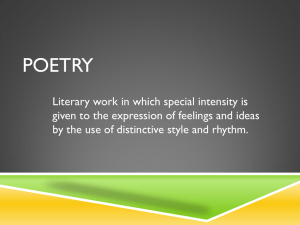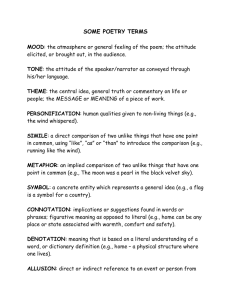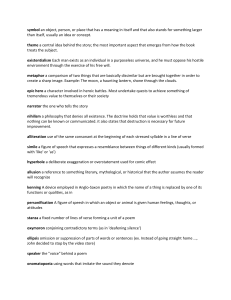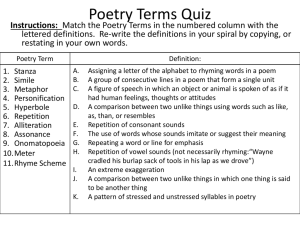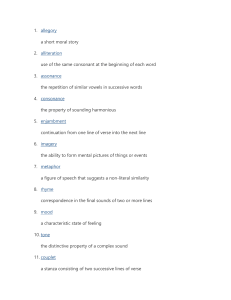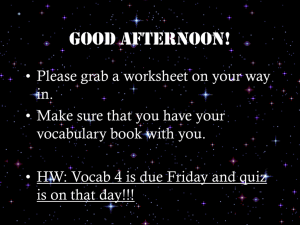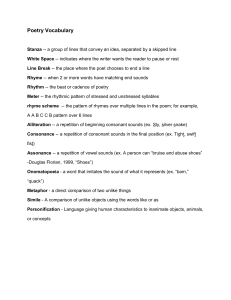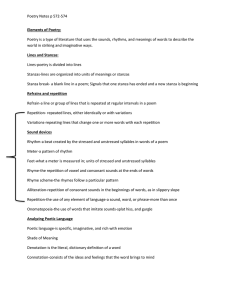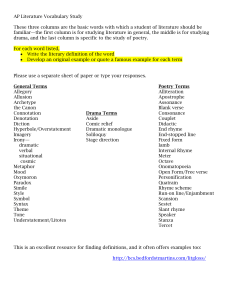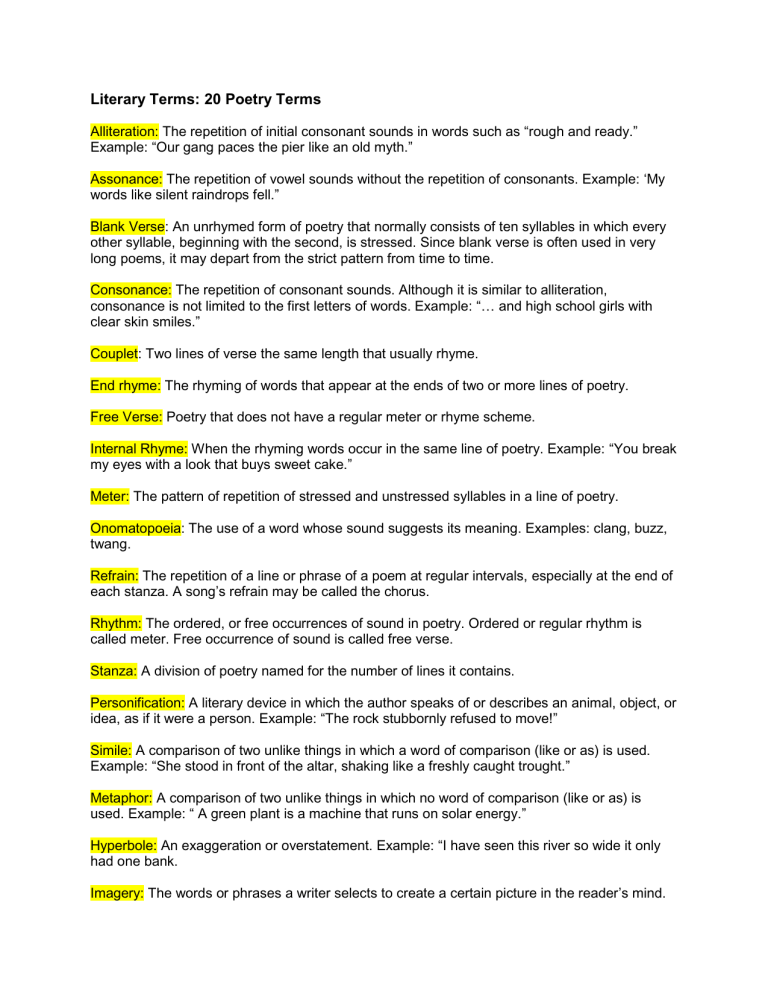
Literary Terms: 20 Poetry Terms Alliteration: The repetition of initial consonant sounds in words such as “rough and ready.” Example: “Our gang paces the pier like an old myth.” Assonance: The repetition of vowel sounds without the repetition of consonants. Example: „My words like silent raindrops fell.” Blank Verse: An unrhymed form of poetry that normally consists of ten syllables in which every other syllable, beginning with the second, is stressed. Since blank verse is often used in very long poems, it may depart from the strict pattern from time to time. Consonance: The repetition of consonant sounds. Although it is similar to alliteration, consonance is not limited to the first letters of words. Example: “… and high school girls with clear skin smiles.” Couplet: Two lines of verse the same length that usually rhyme. End rhyme: The rhyming of words that appear at the ends of two or more lines of poetry. Free Verse: Poetry that does not have a regular meter or rhyme scheme. Internal Rhyme: When the rhyming words occur in the same line of poetry. Example: “You break my eyes with a look that buys sweet cake.” Meter: The pattern of repetition of stressed and unstressed syllables in a line of poetry. Onomatopoeia: The use of a word whose sound suggests its meaning. Examples: clang, buzz, twang. Refrain: The repetition of a line or phrase of a poem at regular intervals, especially at the end of each stanza. A song‟s refrain may be called the chorus. Rhythm: The ordered, or free occurrences of sound in poetry. Ordered or regular rhythm is called meter. Free occurrence of sound is called free verse. Stanza: A division of poetry named for the number of lines it contains. Personification: A literary device in which the author speaks of or describes an animal, object, or idea, as if it were a person. Example: “The rock stubbornly refused to move!” Simile: A comparison of two unlike things in which a word of comparison (like or as) is used. Example: “She stood in front of the altar, shaking like a freshly caught trought.” Metaphor: A comparison of two unlike things in which no word of comparison (like or as) is used. Example: “ A green plant is a machine that runs on solar energy.” Hyperbole: An exaggeration or overstatement. Example: “I have seen this river so wide it only had one bank. Imagery: The words or phrases a writer selects to create a certain picture in the reader‟s mind. Imagery is usually based on sensory details. Example: “The sky was dark and gloomy, the air was damp and raw, the streets were wet and sloppy.” Symbol: A person, a place, a thing, or an event used to represent something else. Example: A dove is a symbol of peace.
